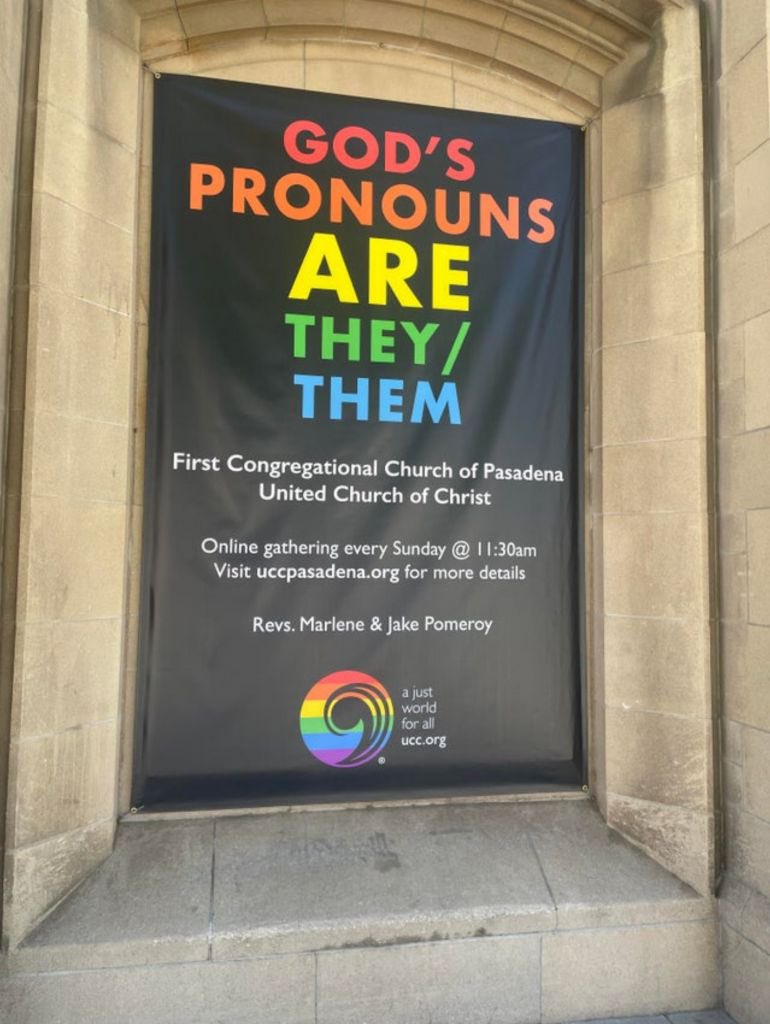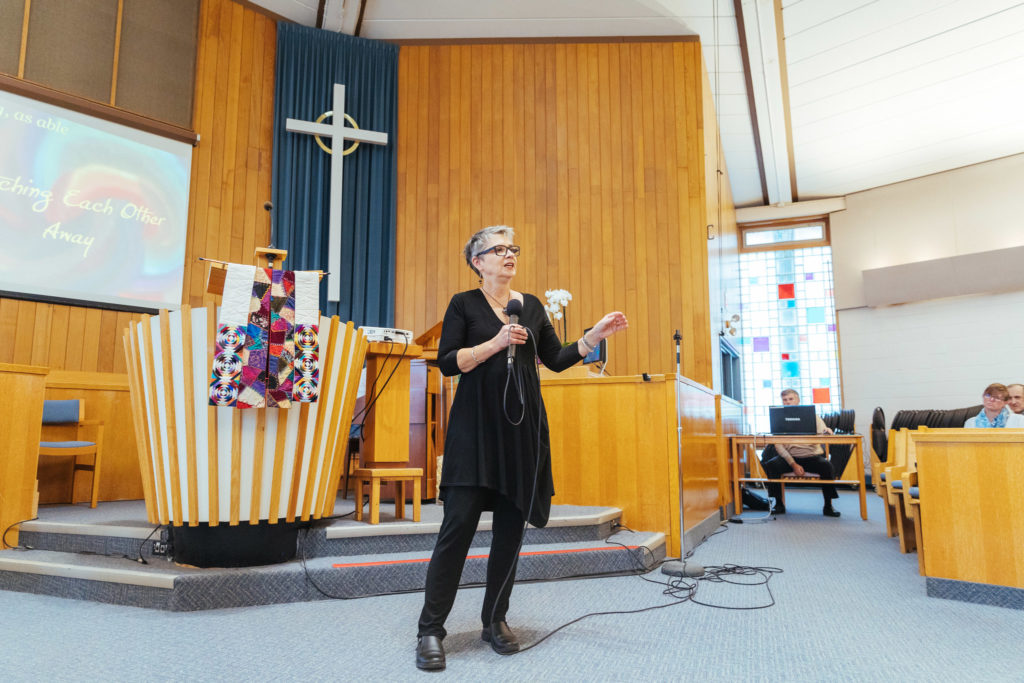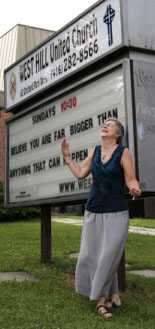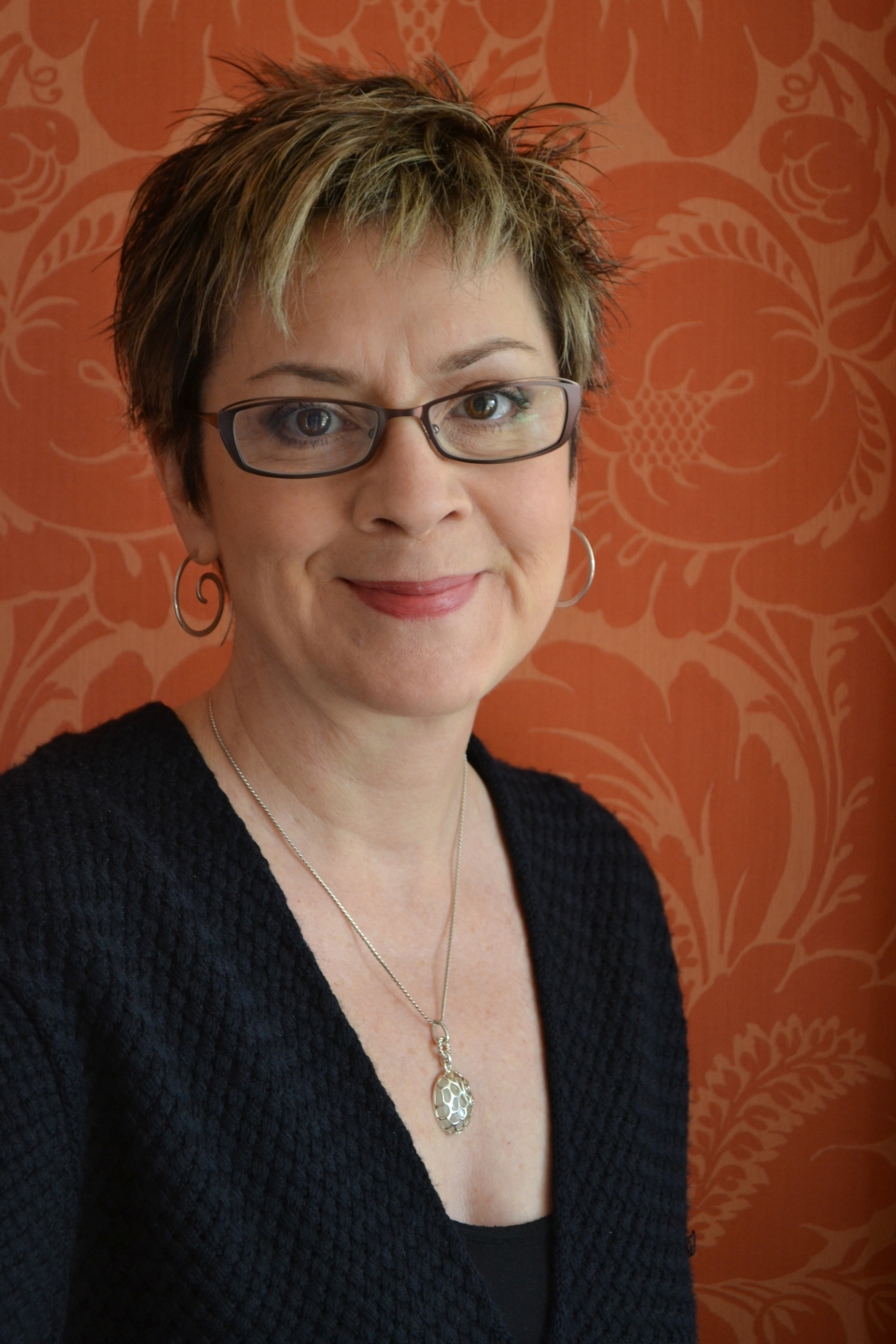Every time I think it is impossible to outdo the incoherent fog that has taken up residence in the minds of Anglican Church of Canada clergy, the United Church comes to the rescue. Here is Rev. Rachel Small Stokes from Immanuel United Church of Christ in Louisville inviting the congregation to join her in reciting The Sparkle Creed.
Category Archives: United Church
Anglican Church of Canada to bunk with United Church
The Anglican Church of Canada is in fierce competition with the United Church of Canada to see who can reach extinction point first.
Both are struggling to align themselves with the conceits and foibles of the age and both are sinking fast. Nothing would be more natural for them than to move in together. So they are.
Friends don’t let friends sink alone.
From here:
The office of General Synod may move out of its current office in Toronto into space owned by the United Church of Canada, the Anglican Journal has learned.
Joseph Vecsi, director of Communications and Information Resources, confirmed that talks are underway about a move with the United Church but have not been finalized, and referred the Journal to Archdeacon Alan Perry, general secretary of General Synod for any additional details. But neither Perry nor a spokeswoman for the United Church of Canada were commenting on the talks at the time this article was written.
“The negotiations are ongoing and once we have something to announce, we’ll let you know,” Perry told the Journal. United Church of Canada spokesperson Lori-Ann Livingstone likewise said, “We don’t have anything to share at this point.”
God’s pronouns
For despairing Canadian Anglicans who think their denomination could not possibly get any worse: it could. The United Church of Christ is showing you how:

Anti-racism and equity officer rethinks darkness and light
The United Church’s anti-racism and equity officer, Adele Halliday, is unhappy with our thinking of sins or evil as black or dark, and goodness as white or light. It hurts and is damaging to the soul. The Bible is full of such imagery, of course, but we should try to read such passages “through an anti-racist or racial justice lens”, and we must remember that “Biblical writers themselves had their own biases.” As I am sure you realise by now, Adele Halliday has no bias at all.
I have been going through my well-worn copy of Lord of the Rings and replacing “Dark Lord” with “D**k Lord”. I like to do my bit.
Read it all here. I should warn you, gentle reader, that the article does assume Adele’s gender and repeatedly refers to zir has “she” and “her”. Upsetting I know: please write to The Anglican Journal to voice your complaint.
Adele Halliday still remembers conversations from a church she attended years ago. The congregation constantly associated whiteness with purity and goodness, and darkness with evil. They talked about people being “washed white” from the blackness of sin.
Language is an important part of Christian worship traditions, whether in Scripture, song, liturgy or prayer. But when this language is unexamined, the result can be alienating—or worse, perpetuate longstanding prejudices, Halliday says.
At the time, Halliday says, “I didn’t feel I had enough personal power to speak up and say, ‘Can you please stop saying this, it is hurting me, it is damaging to my soul.’” Eventually she “voted with [her] feet” by leaving and joining another worshipping community. “But for some people it means leaving [church] completely.”
Halliday is the anti-racism and equity officer for the United Church of Canada, and has been working at the United Church’s national office since 2004 in various capacities, though always related to anti-racism or inter-cultural work.
The United Church’s work on these language issues is based in its anti-racism policy, developed in 2000, Halliday says. One major focus is discouraging the use of “dark” or “black” as synonyms for evil, and words like “light” or “white” as equivalent to goodness.
The Anglican Church of Canada and the atheist reverend
 Rev. Gretta Vosper is a minister in the United Church of Canada; she is also an atheist. Or, to keep up with the times, I should probably say she self-identifies as an atheist. The Anglican Church of Canada, a loose affiliation of gay, lesbian, transsexual and bisexual individuals who like to dress up in strange robes and backwards collars self-identifies as a Christian denomination. As you can see, Vosper and the ACoC have a lot in common: both are at war with reality.
Rev. Gretta Vosper is a minister in the United Church of Canada; she is also an atheist. Or, to keep up with the times, I should probably say she self-identifies as an atheist. The Anglican Church of Canada, a loose affiliation of gay, lesbian, transsexual and bisexual individuals who like to dress up in strange robes and backwards collars self-identifies as a Christian denomination. As you can see, Vosper and the ACoC have a lot in common: both are at war with reality.
An atheist minister might seem to the naïve to be an ecclesiastical oxymoron. That doesn’t worry Vosper who is quite open about her disbelief. So much so that the United Church expressed some doubts about employing her:
We have concluded that if Gretta Vosper were before us today, seeking to be ordained, the Toronto Conference Interview Committee would not recommend her. In our opinion, she is not suitable to continue in ordained ministry because she does not believe in God, Jesus Christ or the Holy Spirit. Ms. Vosper does not recognize the primacy of scripture, she will not conduct the sacraments, and she is no longer in essential agreement with the statement of doctrine of The United Church of Canada.”
Other than the fact that she has not yet, as far as I know, announced that she is a lesbian, she has all the qualifications to fit easily into the ACoC. No doubt it was the rumour that the ACoC considered Vosper to be quite a catch that convinced the United Church to keep her: they have “settled all outstanding issues between them”.
You would think that settling the differences between atheism and theism, a miracle only a little less spectacular than the raising of Lazarus, would be the cause of great celebration, a triumph to be shouted from the housetops. Justin Welby must be green with envy: he can’t even settle the differences in his own church. But the United Church has decided to hide it: “The terms of the settlement, beyond the fact that the Rev. Ms. Vosper may remain in ministry at West Hill United Church, are confidential.” Poor Justin will never know how it was done.
The Anglican Church of Canada and the United Church have issued a joint statement to show there are no hard feelings between them. The ACoC will just have to try harder to attract its own atheist clergy:
The Anglican-United Church Dialogue of Canada held its most recent meeting February 20-22, 2019, at the Queen of Apostles Renewal Centre in Mississauga, ON. Many items of ecumenical relevance in the life of the two churches were addressed on the agenda.
Among these, the Dialogue devoted a portion of time to a discussion of the November 2018 decision of the Toronto Conference of The United Church of Canada to enter into a settlement with the Rev. Ms. Gretta Vosper which allows her to remain in her current ministry at West Hill United Church.
- The decision that the Rev. Ms. Vosper may remain in ministry at West Hill United Church was a decision taken by Toronto Conference, a regional governing body with the responsibility and authority to act in this matter. This decision was not made by the national United Church of Canada; the national United Church of Canada did not have authority in the matter.
- The Conference and the Rev. Ms. Vosper chose to settle the matter between themselves during the preliminary stage of a Formal Hearing on the matter. As a result, the Formal Hearing itself did not take place and therefore no testimony was heard from expert witnesses.
- The terms of the settlement, beyond the fact that the Rev. Ms. Vosper may remain in ministry at West Hill United Church, are confidential.
- This decision, made by a regional body with authority in the matter, does not set a precedent either for that region or for the rest of the United Church of Canada.
- The United Church of Canada’s major restructuring that took effect January 1, 2019, means that now all disciplinary decisions about ministry personnel in the United Church of Canada are made by a national committee in the newly created Office of Vocation.
- This decision does not change United Church of Canada Doctrine in any way. In United Church of Canada polity, changes to Doctrine require a decision during a General Council meeting to approve a change, a vote in favour of the change by the governing board of a majority of the United Church of Canada’s Pastoral Charges and also by a majority of its Regions, and then an affirmative vote by the subsequent meeting of the General Council to ratify the change.
We offer these clarifications to our churches to assist our ongoing dialogue and cooperation in faith and service to the Gospel.
What could be clearer than that?
United Church’s atheist minister, Gretta Vosper, faces defrocking hearing
Gretta Vosper is interesting not just because she manages to believe she can be an effective Christian church pastor while disbelieving in the founder of the Christian church but because she is blazing the trail which, I am reasonably certain, will be taken by many Anglican Church of Canada clergy eventually. We already have our very own atheist theology professor. Imagine the heady Hegelian euphoria of endless indabas between theist and atheist clergy trying to reach the nirvana of good disagreement. It’s enough to make Justin Welby swoon.
Vosper tells us:
In 2013, I embraced the term “atheist” which means, literally, no belief in a theistic, supernatural being.
Atheism does not mean merely an absence of belief in God’s existence, it means asserting truth of the statement “God does not exist”, along with all the disagreeable consequences that accompany that idea. Vosper sounds more like an agnostic than an atheist. But, these days, being an atheist is cool while agnosticism just sounds indecisive and wishy-washy. And Gretta Vosper is undoubtedly more interested in coolness than truth.
From here:
The sub-executive committee of the Toronto Conference of the United Church of Canada is asking the church’s general council to conduct a formal hearing to determine whether or not Vosper should be defrocked.
Alan Hall, executive officer of Ministry and Employment for the United Church of Canada, said, in an email, that it could be a few weeks or months before a final decision is reached.
He said that there will be no provision to appeal the decision within the church courts.
The announcement made Thursday noted that Vosper will be allowed to continue in her role as a minister, with no restrictions, at West Hill United Church until a decision has been made at the hearing.
“The way forward is costly in terms of emotional and spiritual energy. The way forward is costly in terms of time and finances for both Ms. Vosper and the church,” said an online statement issued by the committee.
“At the same time, the sub-executive moved forward believing that a clear answer was required.”
The decision comes a week after Vosper spoke to defend herself against a report made by a review committee that found her “not suitable” to continue in her role because she doesn’t believe in God.
“From the outset of this process, we have urged the Toronto Conference to recognize that their decisions would impact not just one minister, but an entire congregation, and many more members of this church,” said Vosper in an online statement issued by her lawyers Thursday. “In spite of the many letters of support and concern about this process, the sub-Executive had continued down a path that can only result in division.”
1100 other contradiction addicted individuals have signed a petition to prevent the defrocking:
A petition in support of Vosper that rejects the report’s recommendations and a hearing had over 1100 signatures on Thursday.
United Church boycott helps to lay off hundreds of Palestinian workers
In 2013 the United Church of Canada voted to boycott the Israeli company, SodaStream, because it had a factory in the West Bank and the United Church, demonstrating all the political astuteness usually ascribed to mainline churches, has decided that such Israeli settlements are the “principal obstacle to peace in the region.”
From here:
Canada’s largest Protestant church targeted three Israeli companies with operations in Jewish settlements for economic sanctions and boycott.
Last week, the United Church of Canada’s governing General Council approved the start of a boycott campaign, encouraging “economic action” against Keter Plastic, SodaStream and Ahava.
As a result of the boycott, the SodaStream factory has been closed and 500 Palestinians have been laid off.
Another triumph for ecclesiastical social justice.
From here:
The chief executive of SodaStream International Ltd. says he has been forced to lay off hundreds of Palestinian workers after a factory was targeted by an international boycott movement and moved from the West Bank into Israel.
CEO Daniel Birnbaum said the last 74 Palestinian workers left Monday after being denied permits to work inside Israel at the new factory.
The global boycott movement seeks to ostracize Israel by lobbying corporations, artists and academic institutions to sever ties with the Jewish state.
In all, about 500 Palestinians lost their jobs after the factory moved last year following a high-profile boycott campaign against SodaStream.
I disbelieve; help thou mine belief.
The disbelief in which United Church minister, Rev. Gretta Vosper, revels puts to shame the sincerely cherished uncertainties harboured by most the devoutly doubting Anglican cleric. Sad to say, her pious dubieties have become too much for even the United Church of Canada: they may defrock her. Never fear Rev. Gretta; frocked or not, you could almost certainly find employment plying your insights of incertitude on one of the many Anglican facilitated conversation circuits.
 From here:
From here:
TORONTO — An ordained United Church of Canada minister who believes in neither God nor the Bible said Wednesday she is prepared to fight an unprecedented attempt to boot her from the pulpit for her beliefs.
In an interview at her church in the Toronto suburb of West Hill, Rev. Gretta Vosper said congregants support her view that how you live is more important than what you believe in.
“I don’t believe in … the god called God,” she said. “Using the word gets in the way of sharing what I want to share.”
Vosper, 57, who was ordained in 1993 and joined her east-end church in 1997, said the idea of an interventionist, supernatural being on which so much church doctrine is based belongs to an outdated world view.
What’s important, she says, is that her views hearken to Christianity’s beginnings, before the focus shifted from how one lived to doctrinal belief in God, Jesus and the Bible.
“Is the Bible really the word of God? Was Jesus a person?” she said.
“It’s mythology. We build a faith tradition upon it which shifted to find belief more important than how we lived.”
United Church of Canada: Rev. Gretta Vosper, atheist
The Anglican Church of Canada is behind the times in competitive coming out. ACoC clergy are still contenting themselves with coming out as gay: very yesterday. The United Church has a clergywoman who has come out as an atheist.
 From here:
From here:
My congregation belongs to The United Church of Canada, probably the most progressive Christian denomination in the world. It ordained women over seventy years ago and has been ordaining openly LGBTQ leaders for decades. But theologically it remains in the closet about the human construction of religion and all its trapping. I couldn’t stay in that closet.
I came out as an atheist in 2001.
As an atheist, Vosper thinks any experience of God, “commitment, love, engagement, kindness, concern, empathy, humility, wonder” must be attributed to materially enflamed neurons rather than a numinously excited spirit. This, of course, means that her neurons making the following statement are no more valid than mine making the opposite statement. All thought is reduced to nonsense.
“human heart” is used metaphorically – let’s be clear; the experiences we are speaking about, no matter what we call it, are much more likely neurological
All this has been too much for even the United Church of Canada; it has decided to review the Rev Vosper’s “effectiveness” – presumably, other than how effectively she is driving people out of the United Church:
A regional body of the United Church of Canada will interview a clergywoman who is an outspoken atheist to see about her “effectiveness.”
In June, the Toronto Conference of the UCC will enact a formal process known as a review regarding the Rev. Gretta Vosper, an author and founder of the Canadian Centre for Progressive Christianity who is also a professed atheist.
Internationally, the Rev. Vosper is not alone in her uncloseted clerical atheism: according to this report, 2% of Church of England clergy – that’s around 560 clergy – are atheists. For example, Rev David Paterson said, during an unguarded spasm of random neurological misfiring:
…. there was no conflict in preaching while being unable to believe in God. “Within my congregation I would take the line that how you feel about God is not in the least dependent on whether you think God exists or not. I preach using God’s terminology, but never with the suggestion that God actually exists.
Who needs Dawkins and Hitchens when the church has its very own Vosper and Paterson?
Canadian United Church clergy join a union
Apparently, they want better protection “from workplace violence and harassment”; things like little old ladies hitting them with their handbags.
From here:
A group of United Church ministers in Ontario has joined Canada’s largest private-sector union.
Clergy have launched Unifaith, a community chapter of Unifor, which has more than 300,000 members.
“A large number of colleagues are aware of issues of workplace bullying, isolation and desolation for those serving in their vocation. This has been an ongoing concern for us for many years now,” said Rev. Jim Evans, Unifaith’s interim president. “We’ve looked at various ways to address what could happen in terms of advocacy and professional development for those who are indeed in desperate circumstances.”
Just as my hopes were raised by the risible prospect of placard wielding clergy manning – sorry, womanning – picket lines to keep worshippers out of churches they have long since abandoned, they were dashed by this:
Evans said there is no chance of a strike at any time.

